Itchy scalp is a common problem that occurs for various reasons. But whatever the cause of the itchy head, this condition sometimes becomes unbearable. Fortunately, simple solutions can be used to treat itchy scalp at home. So, to know the cause of your itchy head and how to treat it, read the following paragraphs carefully.
What is the cause of an itchy head?
Your scalp is thinner and probably more sensitive than other body areas. On the other hand, shampoo, conditioner, and other hair products contain ingredients that can trigger allergic reactions in your scalp. Even natural ingredients may cause itching and sensitivity of the scalp. But apart from the harmful effects of chemical products, the most important causes of scalp itching are:
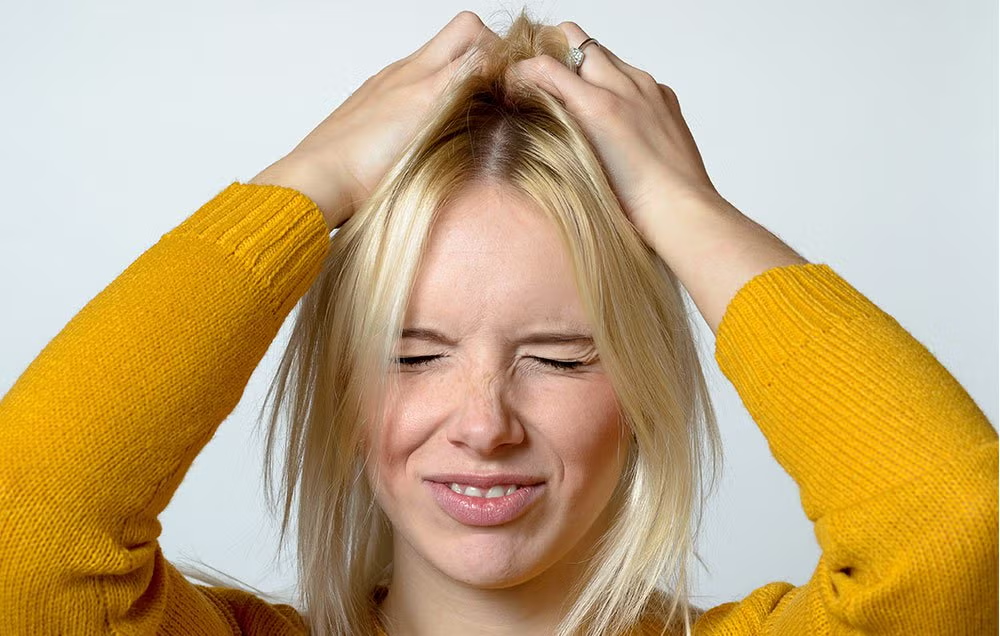
Dandruff
This common disease causes an itchy, dry, and flaky scalp. So, if you have an itchy head, look for white flakes on your hair or clothes. Dandruff is not chronic or contagious, but it can be annoying. If you are looking for a treatment for dandruff, know that in most people, shampoo for dandruff and the scalp will control this problem.
head lice
These small, winged insects live on the patient’s head and neck and cause significant itching in this area. Lice feed on human blood and lay eggs at the hair shaft’s base. These insects move around by crawling and can be very contagious. You may get involved, especially when you are in close contact with an infected person or share towels, combs, pillows, etc..
Folliculitis disease
Hair grows from follicles in the skin. A follicle with a bacterial or fungal infection will also become inflamed and irritable. This disease is known as folliculitis and can spread to other follicles. These conditions often cause acne, itching, and pain. Mild folliculitis may resolve within a few days without specific treatment. However, in acute cases, antibiotics or antifungal drugs treat this disease.
Nerve disorder in the scalp
Have you ever had a car accident or neck injury? Usually, the affected area is also itchy, painful, and burning. This itching is related to the scalp nerve. Arthritis and degenerative disc disease in the neck distribute all the senses in a large part of the scalp and create an uncomfortable feeling on the scalp. This condition is usually interpreted as itching.
Dryness and eczema
Sometimes, the reason for the itchy head is straightforward. A dry scalp is usually caused by chemicals in dyes, shampoos, and other hair products. Of course, there are different reasons for this complication. However, not hydrating and moisturizing the scalp can lead to a dry and itchy scalp.
Change in body temperature
During sleep, natural fluctuations in skin temperature may cause itching.
Hormonal fluctuations
The body’s internal clock regulates the level of hormones in a specific way. At night, the production of anti-inflammatory hormones called corticosteroids naturally decreases. As a result, you may feel itchy all night long.
Failure to properly rinse the hair in the bathroom
An itchy, dry, flaky scalp tells you to rinse your hair better after shampooing. Remaining shampoo or foam from it can irritate the scalp.
Allergic contact dermatitis
This condition, a skin reaction to hair care products, is prevalent among people who color their hair. Hair dye contains paraphenylenediamine (PPD), which the scalp reacts to. You may also be allergic to shampoo, conditioner, or other products directly from the scalp. A symptom of allergic contact dermatitis is itchy rashes on the scalp.
skin hives
This condition consists of red and very itchy bumps that can appear anywhere on the skin, including the scalp. Skin hives appear and disappear within a few hours. If hives persist for more than six weeks, they are called chronic hives. However, hives often go away on their own.
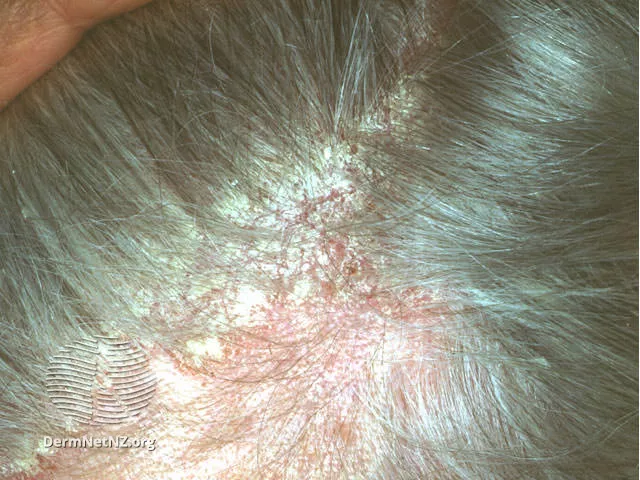
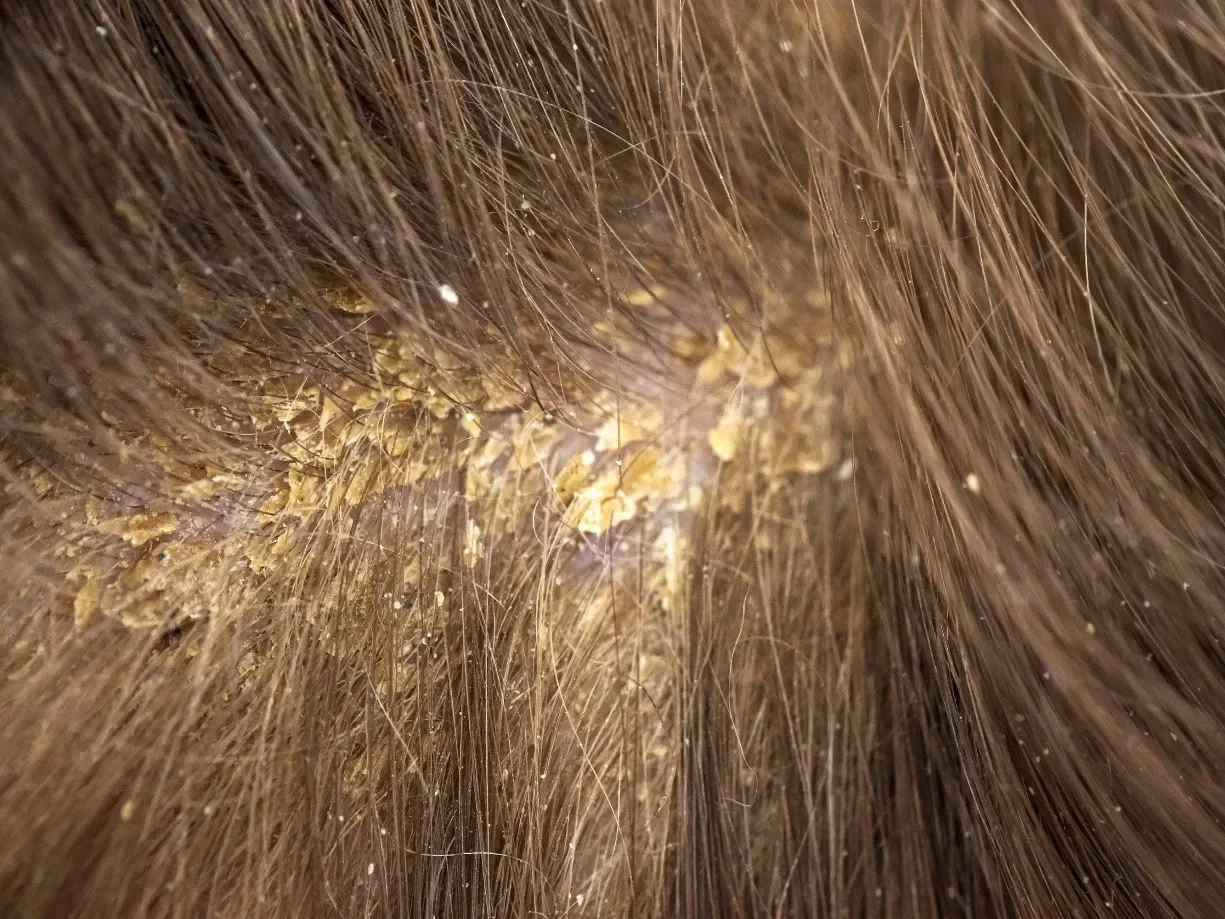
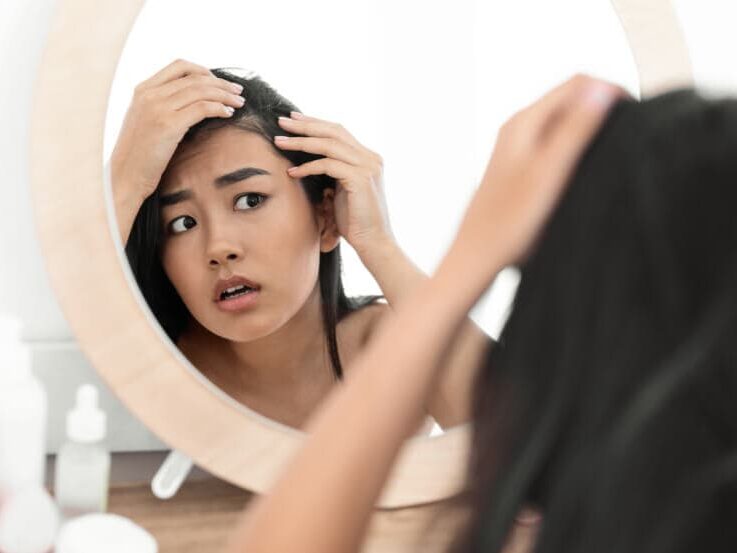
Ways to relieve itchy head
One of the ways to treat an itchy scalp is oil therapy. Oil treatment primarily removes the dryness of the scalp. This is one of the steps to get rid of itching and scalp irritation. In addition, each oil has unique properties that may relieve inflammation and skin sensitivities. In this way, the best oils for treating itchy scalp are:
Tea tree oil
This oil has many properties. However, its antifungal and antibacterial properties are the most essential, and they also help relieve itching. Tea tree oil also has anti-inflammatory properties and relieves all inflammations and sensitivities of the scalp. It is a natural remedy for dandruff, psoriasis, and acne. Therefore, tea tree oil eliminates the causes of scalp itching.
Tea tree oil is also an excellent cleanser for the scalp and follicles. This means that it quickly destroys all types of germs and excess fat accumulated in the hair follicle. This is one way to get rid of an itchy head.
Jojoba oil
Jojoba oil is a natural remedy for dry scalp, eczema, and dandruff. Jojoba oil also speeds up wound healing. So if the cause of your itchy head is a wound or injury, jojoba oil will help you a lot. In addition to being an antioxidant and anti-inflammatory, this oil is also anti-fungal and anti-infective. Antifungal properties can help treat all types of scalp conditions that cause itching.
violet oil
This oil also has vitamin E and antioxidant properties. Violet oil will quickly heal your itchy scalp. This oil is considered a strong hydrator and moisturizer for the scalp. Therefore, if your scalp is dry, eczema, and itchy, it is recommended that you use this oil.
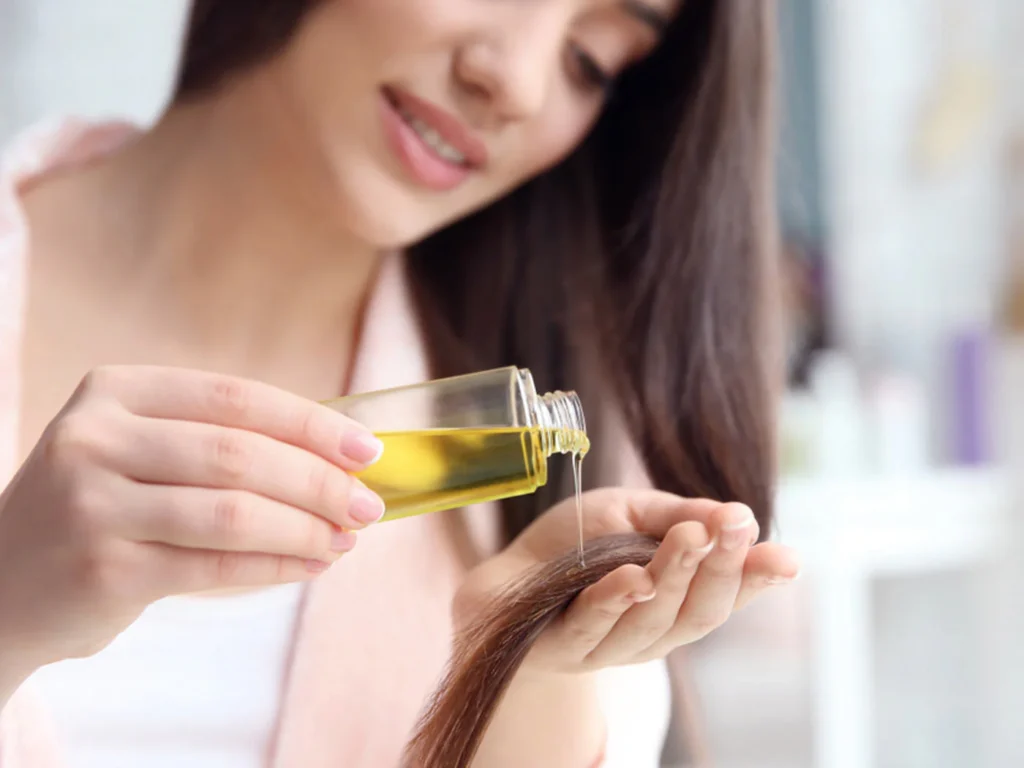
Treating itchy scalp
You can treat an itchy scalp with simple ingredients found in every home. The most effective ingredients in the home treatment of scalp itching are as follows:
Apple vinegar
Apple cider vinegar contains high levels of acetic acid, a natural substance with antibacterial and antifungal properties. People have used this acid as a wound antiseptic for thousands of years. It is especially effective in relieving scalp itching caused by psoriasis. To do this, dilute vinegar in water at a ratio of 1 part vinegar to 1 part water.
You should wash it with warm water after a few minutes or after drying. Vinegar can cause a burning sensation when applied to skin, especially cracked or blistered skin. Therefore, people with open wounds on the scalp should avoid this treatment.
mashed banana
Research shows that bananas’ potassium, fats, and vitamins can help moisturize the scalp, treat dandruff, and improve hair health.
Yogurt and eggs
Combining these two products is a traditional home remedy for dry scalp and hair. Yogurt and egg are mixed and used topically. Avoid this treatment if you are allergic to eggs or milk.
Frequently asked questions about itchy scalp
- What is the cause of an itchy scalp after washing?
Sometimes, right after washing, the scalp starts to itch. This issue has several reasons:
Shampoo: Washing hair with shampoo removes the natural oil of the scalp. This condition dries and irritates the skin. As a result, the scalp becomes itchy.
Failure to properly rinse the hair: Sometimes, the shampoo you wash your head with is improperly cleaned. It means that you probably don’t rinse your head enough. Shampoo remaining on the scalp can cause itching.
- What is the cause of an itchy head at night?
You must have experienced an itchy head at night. In general, itchiness of the skin, including the scalp, increases at night. This situation has several reasons:
Increase in body temperature at night: A change in body fluid level, an increase in blood circulation, and, as a result, an increase in temperature starting in the second half of the day. This condition peaks at night and is a factor in itching the scalp.
Dehydration: body water becomes less and less during the night. This causes dry skin and itching.
Cytokine hormone production at night: This hormone causes inflammation, which in turn causes body itching.
Attention to the itchy scalp: At night, unlike the day when you are busy with daily activities, you have free time. This makes you focus more on the itchy scalp. And as you know, this concentration makes the situation more complicated.
Sweating: As we said, the head’s temperature increases at night, which causes sweating. Sweating also causes an itchy scalp.
- Itching of the scalp due to lack of what vitamin?
Vitamin B12 deficiency can cause scalp itching and rashes. This vitamin is also considered to cause eczema or severe dryness, which is itself the cause of scalp itching.
- How to stop an itchy head?
There are different ways to stop an itchy scalp. Oil therapy is one of these ways. In addition to the oils we introduced, the following measures will be effective:
Proper washing and rinsing of hair and scalp in the bathroom
Use mild shampoos to wash in the bathroom
Do not irritate the scalp with inappropriate products
Drink plenty of water to treat dry scalp
Washing the head after doing sports activities and sweating
- When should we go to the doctor to treat an itchy scalp?
See a doctor if your itchy scalp does not go away within a few days and is accompanied by hair loss, pain, sores, or severe itching. Scalp itching due to fungal infection, lice, and other conditions will not go away without medical treatment. In addition to the physical examination, the doctor can take a sample of your scalp. Then, in the lab, the skin cells are tested for fungi, bacteria, or lice. However, almost all doctors can diagnose the cause of your itchy scalp by examining and reviewing your medical history.
